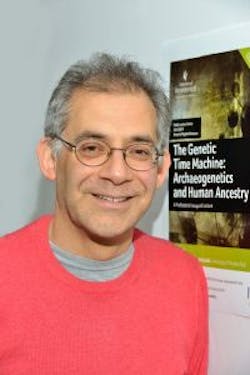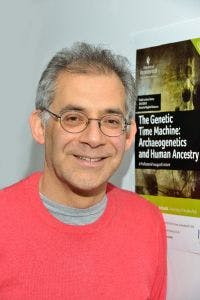$1.5 million genomics research center will delve into evolutionary history
A $1.5 million (£1 million) research center at the University of Huddersfield (Huddersfield, West Yorkshire, England) will train the next generation of genomics specialists to delve into evolutionary history, from the origins of animals to the spread of modern humans.
The new Centre for Evolutionary Genomics is a result of a major transformation in evolutionary studies that has taken place over the past decade resulting from the development of new DNA sequencing technologies, according to Professor Martin Richards, an archaeogeneticist who heads an interdisciplinary team at the University that will form the new center. The University has been awarded the $1.5 million in funding by the Leverhulme Trust under its new Doctoral Scholarships scheme, a major initiative designed to foster new generations of PhD researchers at UK universities.
The University is one of 14 to have received funding under the first round of the scheme and over five years, a total of 15 PhD candidates will carry out wide-ranging research under the supervision of Professor Richards and his colleagues. There will also be the appointment of two postdoctoral researchers.
Alongside Professor Richards in the Centre are fellow archaeogeneticist Dr. Maria Pala and Dr. Martin Carr, who researches the early stages of animal evolution, plus the forensic scientist Dr. Stefano Vanin, a world authority on the use of insect evidence in fields that include the investigation of mummified bodies.
The first cohort of five PhD students will be recruited in early 2015, and will begin their fully funded doctoral research in October. Over succeeding years, they will be joined by two further groups of five.
"This led to a revolution in genomics, looking at whole human genomes or whole animal genomes rather than small numbers of individual genes," says Richards, adding that it had also stimulated major advances in the study of ancient DNA.
Professor Richards has made a series of discoveries about the migration of prehistoric peoples across the world, in regions that include the Near East, Africa, and Europe.
The focus of the research topics carried out by the Centre will extend from the origins of multicellular organisms to the prehistoric peopling of Atlantic Europe. In several projects, the Centre will focus on both contemporary genetic variation in this region and DNA from human and animal remains.
-----
Follow us on Twitter, 'like' us on Facebook, connect with us on Google+, and join our group on LinkedIn
Subscribe now to BioOptics World magazine; it's free!

